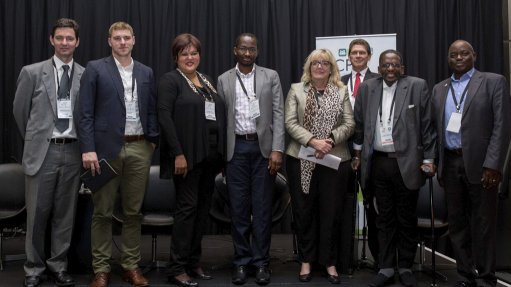
INDUSTRIAL ENERGY EFFICIENCY WORKSHOP The event held on February 22 focused on challenges of rising energy costs
Government should be more proactive and involved in encouraging energy efficiency, as it lies at the core of sustained economic growth, says the National Cleaner Production Centre of South Africa (NCPC-SA).
This, along with the statement that industries and businesses must prepare more sufficiently for inevitable energy price hikes, are the findings of a panel of high-profile energy and consumer experts who participated in the Industrial Energy Efficiency Workshop on February 22, 2017.
The NCPC-SA, which will be exhibiting at the Power & Electricity World 2017 conference and exhibition, taking place at the Sandton Convention Centre on March 28 and 29, notes that participants from the NCPC-SA, the Chemical and Allied Industries’ Association (CAIA), the Consumer Goods Council of South Africa (CGCSA) and the Council for Scientific and Industrial Research (CSIR) focused on the daily challenges of rising energy costs and access to reliable alternatives during this workshop.
The common consensus was that, although the country has made significant strides and is even a world leader in some aspects, overall energy efficiency is currently stifled by bottlenecks from a policy, regulatory and legislative perspective – leading to private sector apathy.
At the time, NCPC-SA director Ndivhuho Raphulu commented that energy efficiency initiatives could be used as a tool for growth in challenging economic conditions. “By investing more in research, development and innovation centres, government can accelerate energy efficiency and infrastructural development in South Africa with an excellent return on investment. “This needs to be supported by improved policy frameworks, and by strategically identifying regional business opportunities with the private sector.”
CAIA executive director Deidre Penfold added that chemical plants are energy intensive, and that current energy affordability, sustainability and investment are falling short. “Although there are some excellent initiatives such as the Industrial Energy Efficiency Programme, there is not enough involvement from government and that it is creating a stumbling block for the industry.”
She further noted that the chemicals industry is also an apex for upstream and downstream industry growth. “The private sector wants to grow and invest locally but cannot because a lack of cheaper energy alternatives translates into a lack of investment. Gas-to-power is a prime example of an alternative energy technology that would greatly assist the chemicals industry in achieving growth.”
In addition to reducing carbon footprints, a long-term and strategic energy efficiency plan is also crucial to streamlining operational costs for business. Massmart Group sustainability manager and CGCSA representative Alexander Haw remarked that many local companies are not aware of their own energy consumption, thereby inadvertently adding to grid constraints and adding to operational expenditure.
“It has never been easier to implement renewables as part of a business plan, as it is more readily available and competitively priced than ever before. On-site solar farms and biogas plants are effective options for many businesses. The current drawback to this is that businesses can’t put energy back into the grid, and are therefore constrained in terms of planning these builds,” he explained.
Meanwhile, CSIR principal engineer and research group leader for energy systems Crescent Mushawana noted that government and business must work hand-in-hand to develop an energy management system and model that measures what is best for the country in terms of sustainable supply and cost trajectories. “Energy efficiency makes business sense – it is no longer a ‘nice-to-have’ option.”
In addition to the panel discussion, the Industrial Energy Efficiency Workshop also hosted presentations on best practice and case studies on workable solutions, including energy management systems, energy modelling (integration of alternatives) and energy efficiency financing. The presentations focused on providing practical solutions to industries and businesses faced with energy supply and cost challenges. These presentations are available on the NCPC-SA website.
The NCPC-SA is a programme of the Department of Trade and Industry hosted by the CSIR. The NCPC-SA assists industry to achieve energy and cost savings through initiatives such as the South African Industrial Energy Efficiency Project, which has saved industry R1.7-billion in energy costs in five years.
Now in its second phase (2016 to 2019), the project is being implemented by the NCPC-SA, together with international implementing agent, the United Nations Industrial Development Organisation.
The NCPC-SA also runs the Resource Efficient and Cleaner Production (RECP) Internship Programme, where science and engineering graduates are appointed as interns to host sites that are looking to improve their resource efficiency and production. The 2016 programme saved South African industry more than R7-million in resources, including 133 000 kℓ of water, after 16 manufacturing facilities nationwide each hosted an intern to conduct on-site resource efficiency assessments over a 12-month period.
Water savings accounted for 48% of overall savings, with energy savings accounting for 43%. An additional R36-million in resource savings was also identified at the plants. At a cost of just R4-million to implement, the economic and environmental benefits of the recently revamped RECP Internship Programme are immense. The 2017 RECP Internship Programme is currently under way.